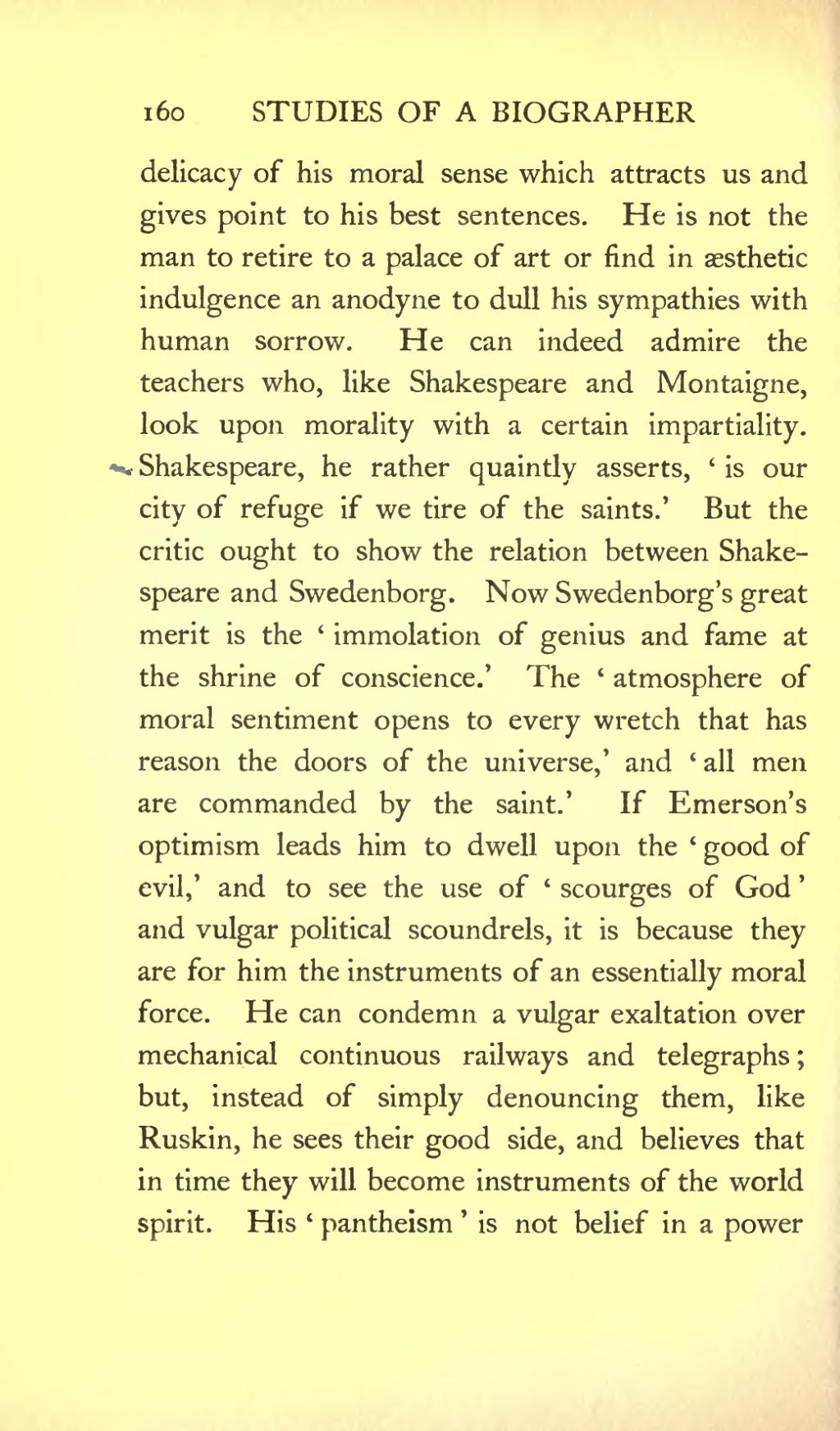delicacy of his moral sense which attracts us and gives point to his best sentences. He is not the man to retire to a palace of art or find in æsthetic indulgence an anodyne to dull his sympathies with human sorrow. He can indeed admire the teachers who, like Shakespeare and Montaigne, look upon morality with a certain impartiality. Shakespeare, he rather quaintly asserts, 'is our city of refuge if we tire of the saints.' But the critic ought to show the relation between Shakespeare and Swedenborg. Now Swedenborg's great merit is the 'immolation of genius and fame at the shrine of conscience.' The 'atmosphere of moral sentiment opens to every wretch that has reason the doors of the universe,' and 'all men are commanded by the saint.' If Emerson's optimism leads him to dwell upon the 'good of evil,' and to see the use of 'scourges of God' and vulgar political scoundrels, it is because they are for him the instruments of an essentially moral force. He can condemn a vulgar exaltation over mechanical continuous railways and telegraphs; but, instead of simply denouncing them, like Ruskin, he sees their good side, and believes that in time they will become instruments of the world spirit. His 'pantheism' is not belief in a power
Page:Studies of a Biographer 4.djvu/174
This page has been validated.
160
STUDIES OF A BIOGRAPHER
